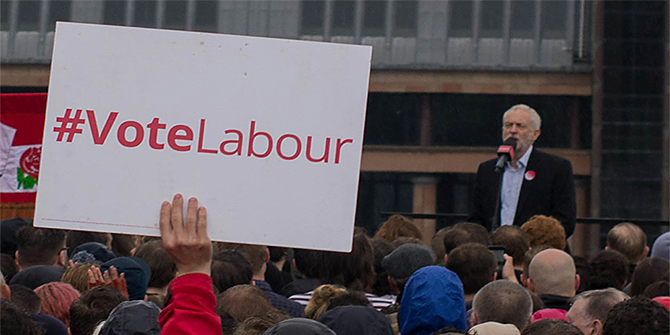 James Lloyd explains why it should be a no-brainer for civil servants to advise political parties in opposition if it helps to avoid potential policy disasters and the future waste of public money.
James Lloyd explains why it should be a no-brainer for civil servants to advise political parties in opposition if it helps to avoid potential policy disasters and the future waste of public money.
A recent story in The Times reported that senior civil servants want closer links with Labour before the next general election, including helping with the party’s manifesto. Although different options are available, one or two-year secondments seem the most likely model.
The purpose is simple: to avoid bad policy choices that subsequently cause policy disasters and U-turns when opposition parties get into government. This is not about the current Labour opposition: the inspiration for the initiative has come to mandarins by reflecting on the experiences of the Coalition government. Predictably, some politicians have poured cold water on the idea. However, with the public finances set to remain dire for years to come, the question should be: can society afford not to have civil servants helping opposition parties with their manifestos and policy positions?
Let’s be clear: bad policy analysis by opposition parties costs real money when they come into power, whether in the form of mopping up after policy disasters have occurred, or wasted staff salaries as civil servants spend years trying to show Ministers why their ideas are unworkable. There’s also an opportunity cost: we all need governments to govern when in power, not spend their first couple of years subjecting their ideas to proper scrutiny for the first time, and then trying to work out what the right answer is.
So, there is a trade-off here: a small risk of politicisation of a small number of civil servants on secondment, versus the many millions of pounds that could be saved by enabling opposition ministers access to high quality policy analysis and advice.
This should be a no-brainer. And the apparent risk of politicising civil servants should not be overstated: no other group in society has more exposure to the limitations of political parties and political masters. Operating as a senior civil servant requires a kind of infinite patience that is more than enough to drive out febrile partisan attachment.
But there’s also a broader issue here: the severe lack of proper policy analysis capability available across all aspects of how policy development occurs, and the effect it has on public policy in the UK. This applies both in Whitehall, but also outside it.
Consider the primary alternative source of policy analysis for opposition parties: think-tanks. Many supposedly ‘independent’ think-tanks are nakedly politically aligned. They are frequently used as launch-pads for political careers, with researchers inclined to bend to the values, pre-conceptions and world-views of senior politicians they eventually hope to work for when they get into government. Many Westminster think-tanks also obtain funding by claiming influence on ministers – influence which would surely be undermined if it meant going through a shadow ministers proposals and saying: “sorry, this will never work”.
In fact, the only flaw with the idea that civil servants should work with opposition parties is that it makes an assumption that mandarins know is often wrong: that when good policy advice is provided, it will be listened to.
Note: This article gives the views of the author, and not the position of the British Politics and Policy blog, nor of the London School of Economics. Please read our comments policy before posting.
James Lloyd is Director of the Strategic Society Centre








Why enhance the power of civil servants? They already advise Opposition whips, “the usual channels”, and, as a general election approaches, Opposition shadow ministers.
The problem with British government is that civil servants seek to concentrate power in their hands and find ways of obstructing decentralisation. Their centralist assumptions are now too influential: don’t let them extend their sway over the Opposition.
The alternative, though, is politicised Civil Servants. At least attempting to be impartial is a positive step, because it should offer a check and challenge on policy.
DWP as an example is a terrible one, though, as it’s been run by a succession of ministers who have ignored the evidence presented to them, as it didn’t fit their agenda.
Of course some mistakes can be traced back to Civil Servants. They are, after all, only human, and you can’t pick apart ministers or Civil Servants for being human. Mistakes happen. What the CS does have (for good and bad), is an incredible range of institutional knowledge, which is in part where the ‘this is how policy is done’ stuff comes from. But both in 1997 and in 2010, most of the Civil Service was incredibly ‘up’ for a new Government and way of doing things.
An interesting article, but one that contains at least three significant conceptual problems.
The first is the assumption that civil servants are able to provide the quality of policy analysis argued for; while politicians can be blamed for many government mistakes, more than a few can also be traced back to impartial ‘experts’ in the civil service.
The third is the idea of the impartial civil servant. I’m sure that any bias is unlikely to be as party political as those politicians are subject to, but it doesn’t mean bias does not exist. Established working methods and orthodoxies are common among the civil service (the Treasury, MOD and FCO are prime examples) where a culture of how policy should be done is firmly entrenched. It could in fact be an important role for a politician to shift an unsatisfactory paradigm when entering into government.
The third is the inability of politicians, their advisors and political parties to conceive of workable policies. There are surely problems that the vastly under resourced political parties face in coming up with policy, which can undoubtedly affect the quality of the policy being produced, but political parties are also likely to be more in touch with the concerns of voters – who can see in real terms if a policy is failing (i.e. DWP and benefits) and with wider society, industry etc. The civil service can often be a closed shop that is too little subject to the effects of the policies they are producing.
The idea of secondments of civil servants to assist the opposition to produce policy seems sound to me, for many of the reasons outlined in your article, but the situation is more complex then you suggest.